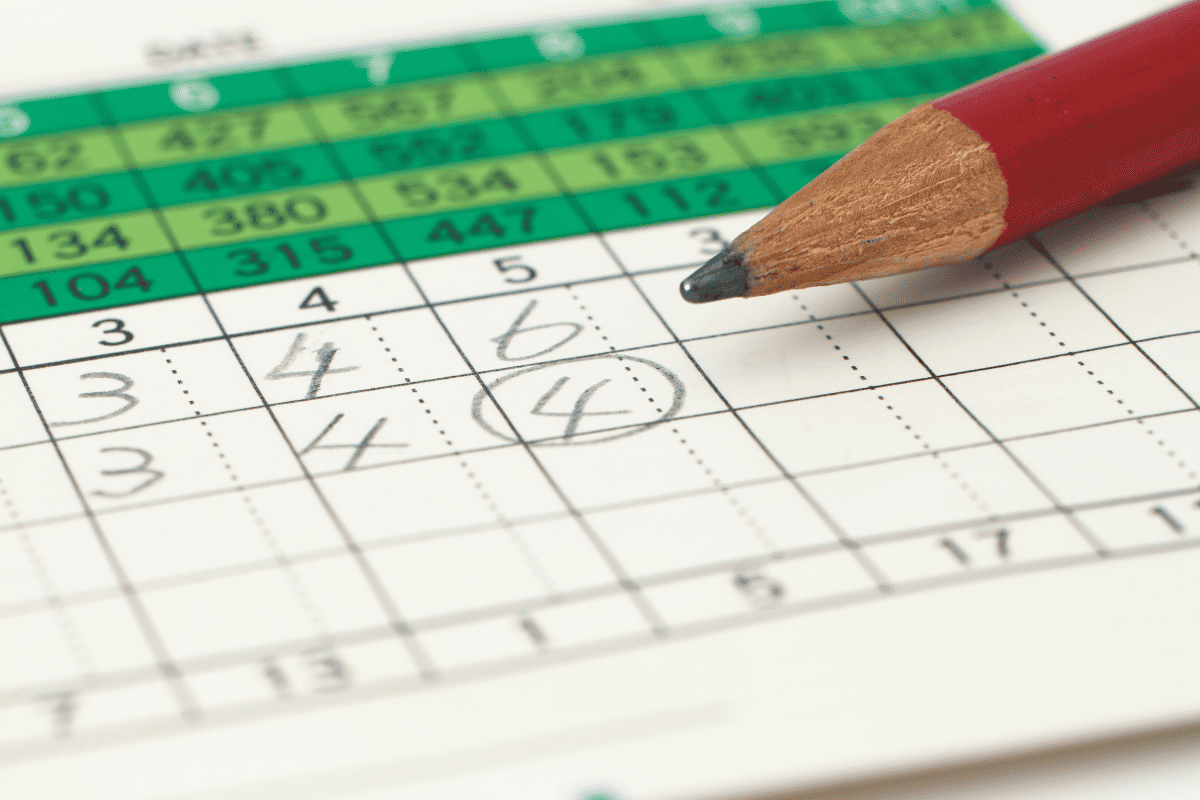What Constitutes a Good Golf Score? (Amateur and Pro)
Golf is not just a sport—it’s a passion, an addiction, and for many, a way to measure self-improvement. Whether you’re a weekend warrior or someone who enjoys the occasional round with friends, understanding what constitutes a good golf score can elevate your appreciation for the game.
Understanding Golf Scoring
Golf has a unique scoring system. Unlike many sports where higher scores are better, in golf, it’s the lower, the better. Your score represents the number of strokes you’ve taken to complete a round, and naturally, fewer strokes indicate better play.
Why Knowing a Good Score Matters
Knowing what a good score is can provide a sense of accomplishment, or a goal to strive for. It’s about more than just competing; it’s about tracking your progress, understanding your strengths and weaknesses, and enjoying the journey of self-improvement on the greens.
Understanding Par
Defining Par
At the heart of understanding golf scoring lies the concept of ‘par’. Par is the predetermined number of strokes an accomplished golfer should make on a hole, or an entire course. For instance, if a hole is listed as a par 4, it means that a skilled golfer is expected to complete the hole in four strokes.
How is Par Determined?
Par is determined based on the distance from the tee to the green, along with the additional strokes needed to sink the ball. Typically, a hole will be rated as a par three, four, or five, although variations do exist.
When summed up, these individual pars give the overall par for the course, which usually ranges from 70 to 72 for most standard courses.
Common Par Values
The majority of golf courses feature a mix of par-3, par-4, and par-5 holes, providing a good variety and challenge for golfers of all levels. Some courses also feature more challenging par-6 holes. Understanding the par values helps in setting realistic expectations and goals for your game.
Now, with a grasp of the basic scoring system and the pivotal role of par, you’re on your way to deciphering what a good golf score looks like for you. Whether chasing the elusive “below par” score or just looking to have fun on the course, understanding these basics is the key to a more enriched golfing experience.
Analyzing Average Golf Scores
The Amateur Perspective
For the casual golfer or the hobbyist, scores can widely vary. However, a common average score is often around 100 strokes for an 18-hole round.
This figure, of course, can be a bit intimidating to newcomers, but it’s a realistic reflection of the challenges golf presents. Over time, as one hones their skills, breaking 90 or even 80 becomes a new, exciting milestone.
Professional Benchmarks
On the flip side, professional golfers operate in a different realm. Their scores commonly range from the low 60s to the mid-70s. The contrast in scoring between amateurs and professionals showcases the high skill level and consistency required to excel in the sport at a competitive level.
The Impact of Course Difficulty
Not all courses are created equal. Some are notoriously challenging, with complex layouts and tricky hazards, while others are more forgiving.
The difficulty of a course significantly impacts what a good score might be on that course, making it essential to consider the course’s characteristics when evaluating scores.
Breaking Down Handicap
What is a Handicap?
In golf, a handicap is a brilliant way to level the playing field. It’s a number calculated based on your previous scores, and it gives an idea of your playing ability.
The lower your handicap, the better player you are perceived to be. A handicap allows golfers of varying skill levels to compete fairly against each other.
How Handicaps Reflect Your Ability
Your handicap is like a golfing resume; it succinctly summarizes your ability on the course.
It’s calculated using a formula that takes into account your recent round scores and the difficulty of the courses on which those rounds were played. This number fluctuates as you play more rounds, reflecting your current skill level.
The Relevance of Handicap in Scoring
Understanding your handicap is crucial in evaluating what a good golf score is for you personally. It helps in setting realistic goals and also in gauging your progress over time.
By comparing your scores relative to your handicap, you can get a clearer picture of your performance and the areas you need to work on.
With a deeper understanding of average scores and the handicap system, you can better appreciate where you stand in your golf journey. Whether it’s lowering your handicap or breaking a personal scoring barrier, knowing these metrics is fundamental in setting and achieving your golfing goals.
Factors Influencing Golf Scores
Course Difficulty
A golf course with tight fairways, numerous hazards, and fast, undulating greens can be a true test of skill. The design and conditions of the course play a significant role in determining your score. Courses are often rated for their difficulty, so knowing a course’s rating can provide context for your performance.
Player Skill
It goes without saying, but the more skilled you are, the better your score will likely be. Your ability to drive, approach, chip, and putt effectively are fundamental aspects of achieving a lower score.
Moreover, understanding the nuances of the game and having a solid strategy can also significantly impact your scoring.
Equipment and Technology
Modern golf equipment and technology can also play a pivotal role in improving your game. From clubs tailored to your swing to GPS devices that provide accurate yardages and even smart golf balls, embracing the technological advancements in golf can lead to better scores.
Strategies to Improve Golf Scores
Improving Technique
Working on your technique is a surefire way to lower your score. This includes refining your swing mechanics, improving your putting accuracy, and mastering the short game. Consider working with a golf instructor who can provide personalized feedback and drills to elevate your game.
The Importance of Practice
As with any sport, practice is key. Regular practice sessions, both on the range and on the course, can help you become more consistent and confident in your shots. Incorporating drills that mimic game situations can also be beneficial.
Resources for Golf Improvement
There are a plethora of resources available for golfers looking to improve their scores. Local golf clinics, online tutorials, and even golfing apps can provide valuable insights and tips.
Additionally, joining a golf league or community can also provide the opportunity for friendly competition, which can be a motivating factor in striving to improve your scores.
Now, armed with the knowledge of the factors that influence golf scores and strategies to improve, you are well on your path to not only understanding what a good golf score is but also working towards achieving it.
Golf is a journey of continuous learning and improvement, and every round presents a new opportunity to better your score and enjoy the camaraderie of the game.

